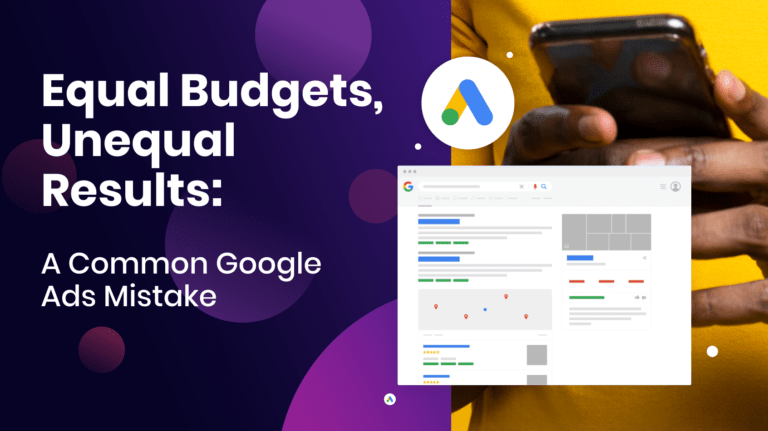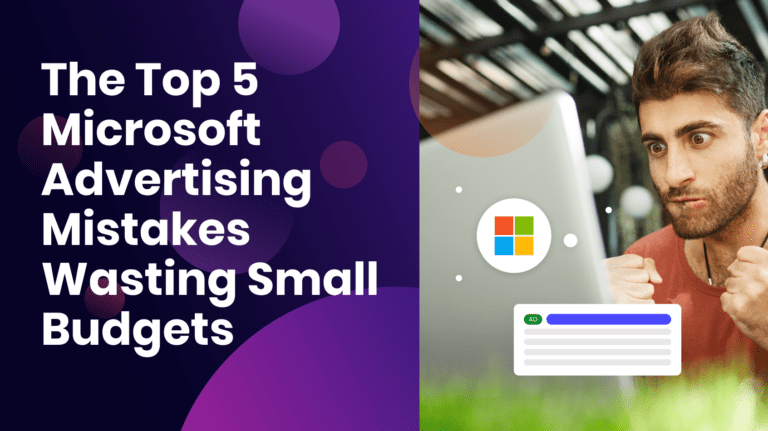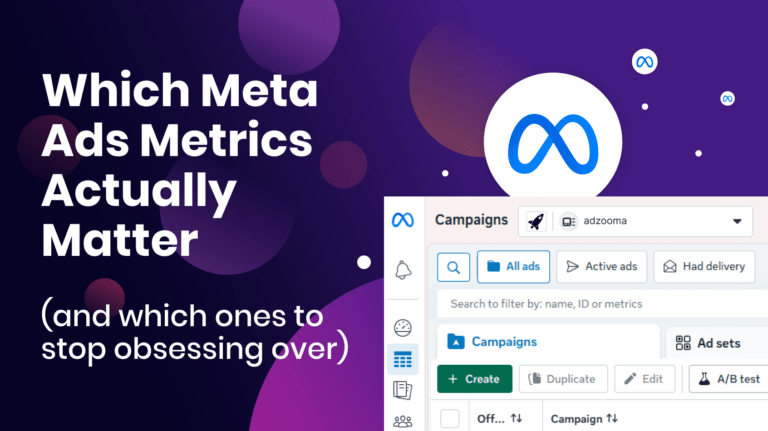If I learnt anything from Ghostbusters 1 & 2, it’s that working together can save the world from impending doom.
Fortunately, there are no gargantuan marshmallow men or benevolent sorcerers in digital marketing but there are two opposing disciplines that really should work together more: PPC & SEO. Why? Because they have the same interests at heart and they share SERPs together, which means they offer each other insights to help improve performance.
But the divide still exists so in this article, I will look at why you should “cross the streams” and integrate both PPC and SEO into your strategy as a combined effort rather than two disparate sections.
Plus, as our brand new partnership with Hike SEO allows you to optimise your PPC and SEO performance simultaneously, there’s no better time to tell you all about it.
Here’s everything you need to know.
Note: if paid ads aren’t effective for your strategy, don’t use them. This is only for businesses who use both as part of a wider marketing strategy.
The Adzooma and Hike SEO partnership
Yup, you got it.
Adzooma is partnering with Hike SEO – a software that helps businesses increase their visibility on search engines such as Google – to provide our customers with more value than ever before.
Like Adzooma, Hike was designed to make online advertising quicker and easier than ever before. Their SEO platform is simple and easy to use, with each part providing step-by-step recommendations that anyone in your business can implement. They don’t even need to know SEO.
Both of our platforms were built with similar intentions. Where we created a solution we couldn’t find anywhere else on the market, Hike noticed a lot of small businesses were at a loss with SEO. So, it only makes sense for us to come together and offer double the expertise.
To celebrate this partnership, Hike SEO is offering Adzooma users 50% off their first month’s subscription. Not only can you boost your organic visibility in less time, but you can implement these strategies for half the original price.
Primer: what is SEO and what is PPC?
This wouldn’t be a digital marketing article without some brief definitions.
SEO stands for search engine optimisation and describes the maintenance of websites with the purpose of improving their visibility on search engines.
PPC stands for pay-per-click and describes an online advertising model where advertisers pay publishers for every click their ads receive.
The main difference between the two is SEO is a free or “organic” way of website promotion while PPC is a paid version.
Keyword research is key
Keywords are the lifeblood of SEO and PPC and therefore keyword research is essential for both. Without it, you’re wasting time and money with nothing to show for it.
The methods and applications of keyword research may differ between the two disciplines but they offer each other insights into what people search for and what people click on.
Using the Hike SEO platform, you can find the keywords your customers are searching for on Google without worrying about external tools. The platform even gives each phrase a priority score to help you identify the most achievable keywords, as well as showing the top searches in your industry. It’s a win-win.
Intent is a spectrum
People search for things for a reason; they intend to find something whether that’s opening hours for a shop or the latest football scores. But one thing PPC and SEO share is a more granular approach to matching intent. Broad keywords have the biggest scope but the worst return on investment (ROI) overall as they have the most competition.
In both PPC and SEO, it’s about finding the more niche intent and balance the outlay with the potential return, in the case of PPC. For SEO, you’re aiming for the right blend of search volume, keyword difficulty, and trend analysis.
PPC data that can help SEO
Digital marketing is useless without data analysis. But often, different channels rely solely on their own form of data: SEO sticks with organic data, PPC with paid data. That seems counterintuitive. Just because they’re different, doesn’t mean they can’t work together in finding opportunities for each other. After all, they share the same SERPs.
Here are some reasons why PPC campaign data can be an effective source for SEO analysis:
- High-performing keywords offer an insight into what people engage with the most. If click-related metrics are high, they may be more likely to click organic links for the same or similar keywords. From there, you can decide the intent and type of page you want to create, if the volume and competition is right.
- Given how paid ads are displayed, most users know to avoid them unless they want to click them. And if they do, the intent is to browse and potentially convert. That leads to longer sessions and higher dwell times which, in turn, work positively for sites in the long term. Finding the pages that perform best through paid referrals could lead to important SEO insights for future content.
- Appearing in the SERPS with a paid ad and an organic listing is like hitting the jackpot, hence our partnership with Hike SEO. It might seem like a counterintuitive battle as you’re competing with yourself to a degree, but it needn’t be that way. A little competition never hurt anyone, right? So use it as a test – pretend the paid ad is a competitor and see how well it does against a piece of content. If it outperforms, dig deeper and find some potential reasons. If not, perhaps there’s some room for improvement for your ad. It’s all about testing.
- Bidding on competitor keywords is commonplace now. But what if you wrote about your competitor and ended up ranking for one of their branded keywords? Assessing the performance of targeted ads that mention your competitor could give vital information if you choose to go down that route organically.
SEO data that can help PPC
Here are some reasons why PPC campaign data can be an effective source for SEO analysis:
- As Sergey Grybniak mentioned in his article How to Combine SEO & PPC for More Powerful Results, long tail keywords can help with finding relevant negative keywords for your campaign. This could contradict #3 from the “PPC data that can help SEO” section but if ads aren’t relevant, you want to minimise wasted spend.
- A good landing page will rank for high-performing keywords. Just as PPC keywords can influence SEO decisions, it can work the other way around if you’re looking for inspiration.
- Use SEO as a testing ground for keyword ideas before taking the plunge with ad spend.
The tools to help SEO and PPC
There are a wide range of tools that can help both SEO and PPC efforts including:
SEMrush – As far as toolkits go, SEMrush is one of the industry leaders, offering both organic and paid tools. Its PPC Keyword Tool lets you plan and set up optimised Google Ads campaignS, with functionality to organise keywords, set negative keywords and export the campaign data for further analysis.
Ahrefs – The battle for supremacy is strong between SEMrush and Ahrefs and while the latter excels more with SEO, it also has a vastly improved PPC tool. You can research PPC keywords and find out what keywords your competitors are bidding on, alongside their CPC and potential traffic.
Serpstat – Described as a “growth hacking tool for SEO, PPC, and content marketing”, Serpstat offers a lot of the same features that SEMrush and Ahrefs have including position tracking, backlink analysis, keyword research, and competitor research. You can even try some of the features for free on the website.
Google Keyword Planner – Keyword Planner is primarily for PPC but the fact it’s free and offers hundreds of potential keywords makes it a fantastic tool for anyone who can’t afford paid tools like SEMrush and Ahrefs.
Google Trends – Forecasting trends can give you an edge in both SEO and PPC. With Google Trends, you can compare a campaign’s performance with potential seasonality issues if there’s been a drop in performance. You can also use it to find possible keywords with an upward trajectory and target those. The money/visibility isn’t always in the topics that everyone is talking about.
Excel/Google Sheets – With all the PPC and SEO data, how are you going to collect it and analyse it? With a spreadsheet. Whether you’re a Excel power user or prefer Google Sheets, there are hundreds of functions to use to analyse the data you have and make more efficient decisions.
Python – Python is the second most popular programming language behind JavaScript for a reason. It’s versatile, easy to learn, and perfect for small to large scale projects. And there are plenty of data analysis, AI, and machine learning capabilities. That’s perfect for any digital marketing strategy. I’ve previously written the ways you can use Python in your PPC campaigns and JC Chouinard wrote an impressive guide to Python for SEO on his website.
Adzooma’s SEO Performance Report – The SEO Performance Report will analyse your website and identify immediate actions you can take to improve your SEO. You’ll get an overall score out of 100 and then receive a detailed breakdown of your performance into 4 key areas: keyword performance, onsite SEO, page speed and backlinks. You can also compare your client’s performance with a competitor, showing how they compare with the competition.
If you don’t have the time or expertise to manage these tools or want to find out more about what’s out there, the Adzooma Marketplace has the answer. Designed to help businesses and agencies find their perfect match, it’s bursting with excellent digital marketing agencies to help improve your results.
Find out more by browsing our Marketplace today.
Brand awareness
One area that PPC and SEO share a commonality is brand awareness. The SERPs are billboards for your site and every appearance is an example of brand awareness.
Because of that it’s important to use both disciplines together. You don’t want to give a bad impression of your brand with poor practices. So from the PPC perspective, consider the ethics of how you advertise your brand and don’t mislead. The same can be said from an SEO perspective but also from a technical aspect – make sure all your on-page techniques are on point – optimised meta titles and descriptions, headings used correctly and in the right places, diversifying how content is presented (tabular data in tables, using bullet points, etc.).
It might sound like a lot, but it becomes second nature once you get the hang of it. And if you haven’t got time for that, Hike SEO is the number one platform for building a strong presence on Google and ensuring your content is getting in front of the right people.
Better yet, it has all the features you need to build a successful SEO strategy, make important changes and track your results. Paired with Adzooma helping to optimise your paid campaigns, what more could you need?
As long as both SEO and PPC are aligned, a customer’s brand experience will be a positive one.
Can SEO and PPC negatively affect each other?
Absolutely. Black hat tactics don’t thrive as much as they used to thanks to Google’s continuous efforts to combat spam and algorithmic trickery but they still exist. That includes attempts to game the system with keyword stuffing for example (yes, sites still do it, even if it isn’t as effective anymore).
With PPC, that can include tactics like click fraud to kill the competition. These kinds of negative acts are easily found and could cost your site.
So who ya gonna crawl?
I couldn’t resist the joke.
Even if you don’t use paid ads for your site, it’s imperative that you use SEO. The addition of PPC to your strategy should be complementary to the existing components, regardless of their differences. There’s a lot of similarities between the two and finding that balance is the difference between an okay strategy and a killer one.
Focus on your keyword research, how you can use each data channel to work with the other, and improve brand awareness without using underhanded tactics.
If you want to do all of that in less time, take a look at Hike SEO’s exclusive offer as part of our brand new partnership. All Adzooma users can benefit from 50% off their SEO services, making both SEO and PPC a walk in the park.
Boosting your ROI has never been easier.




